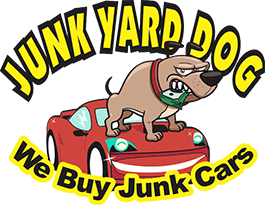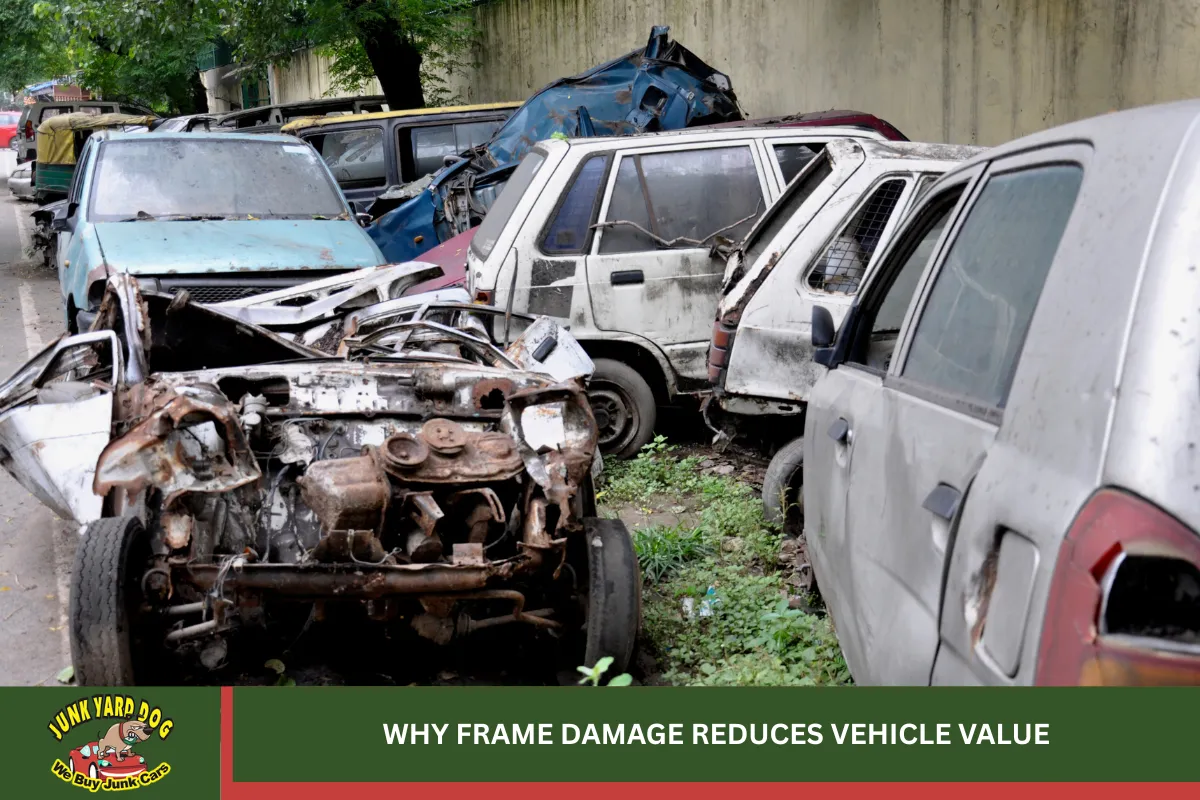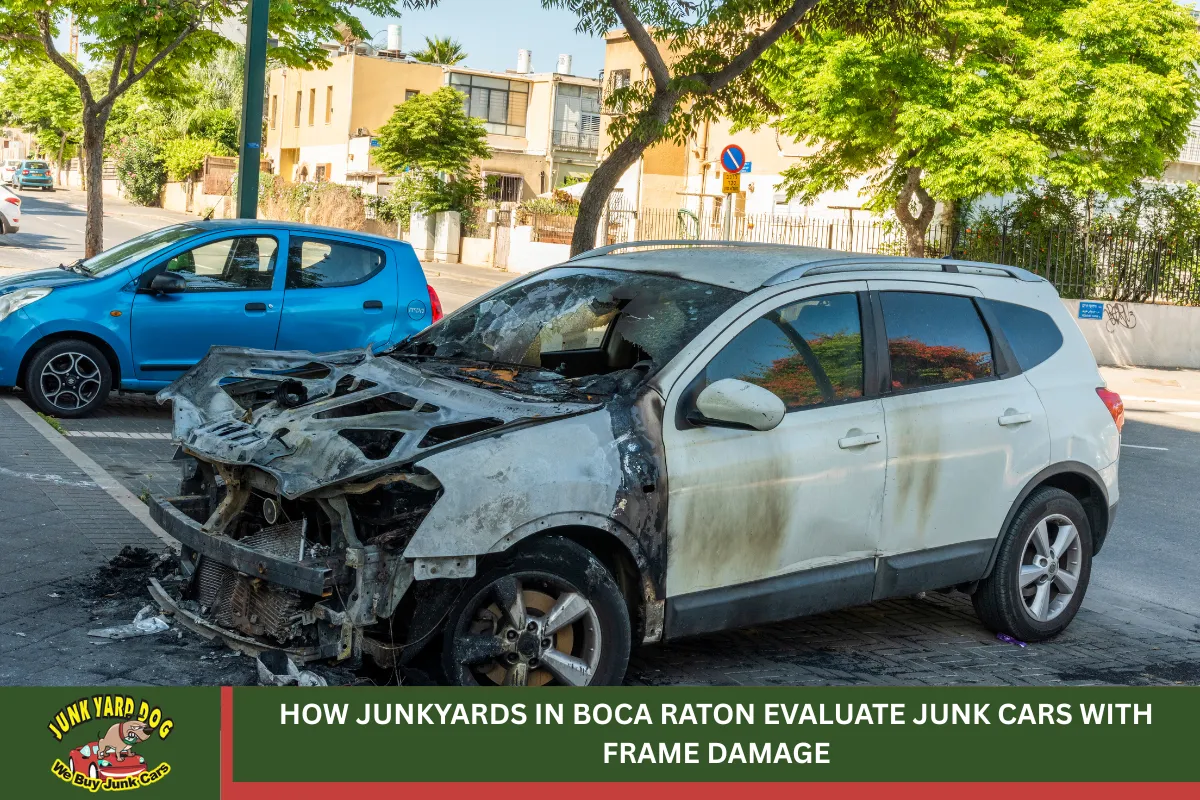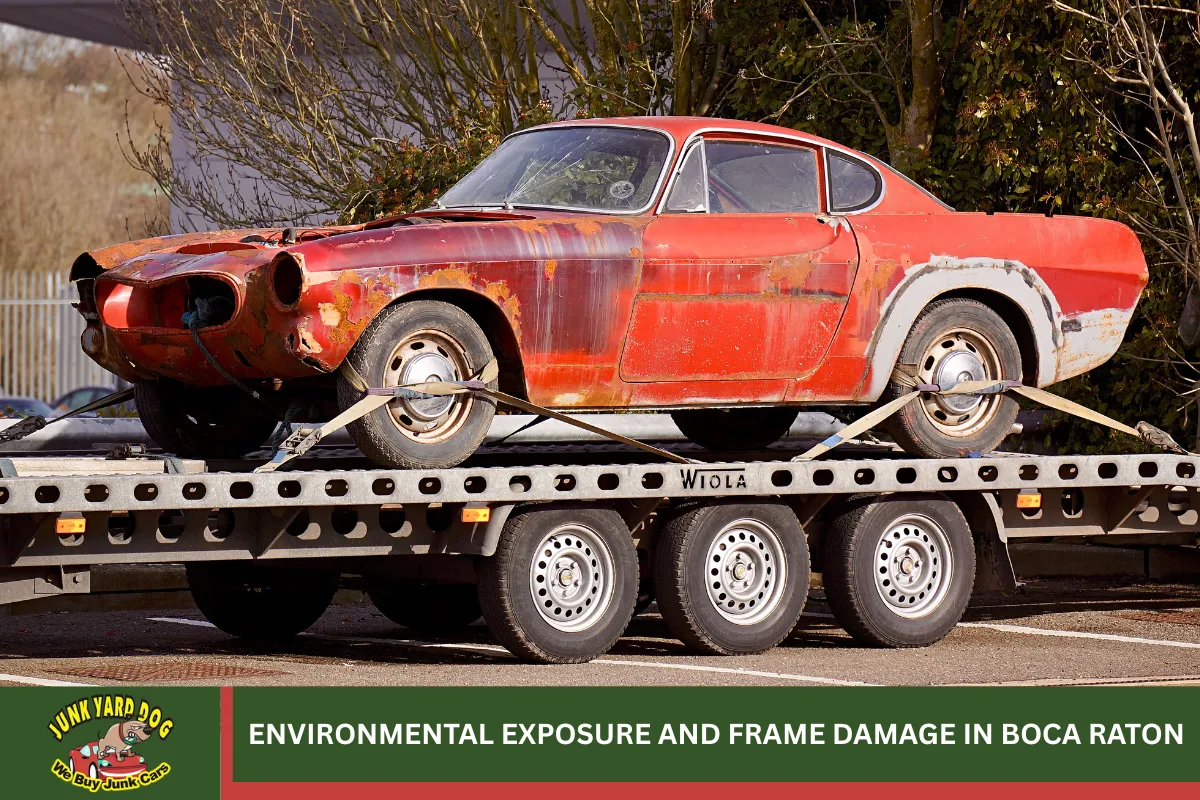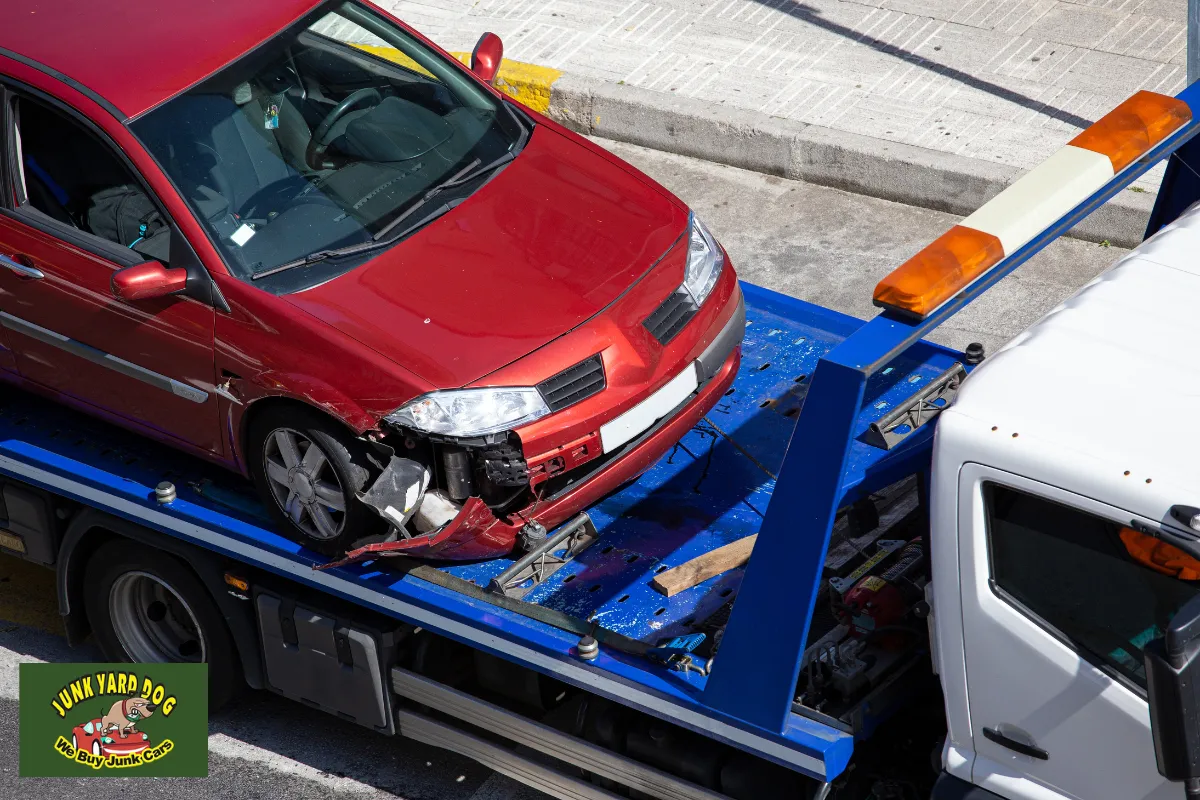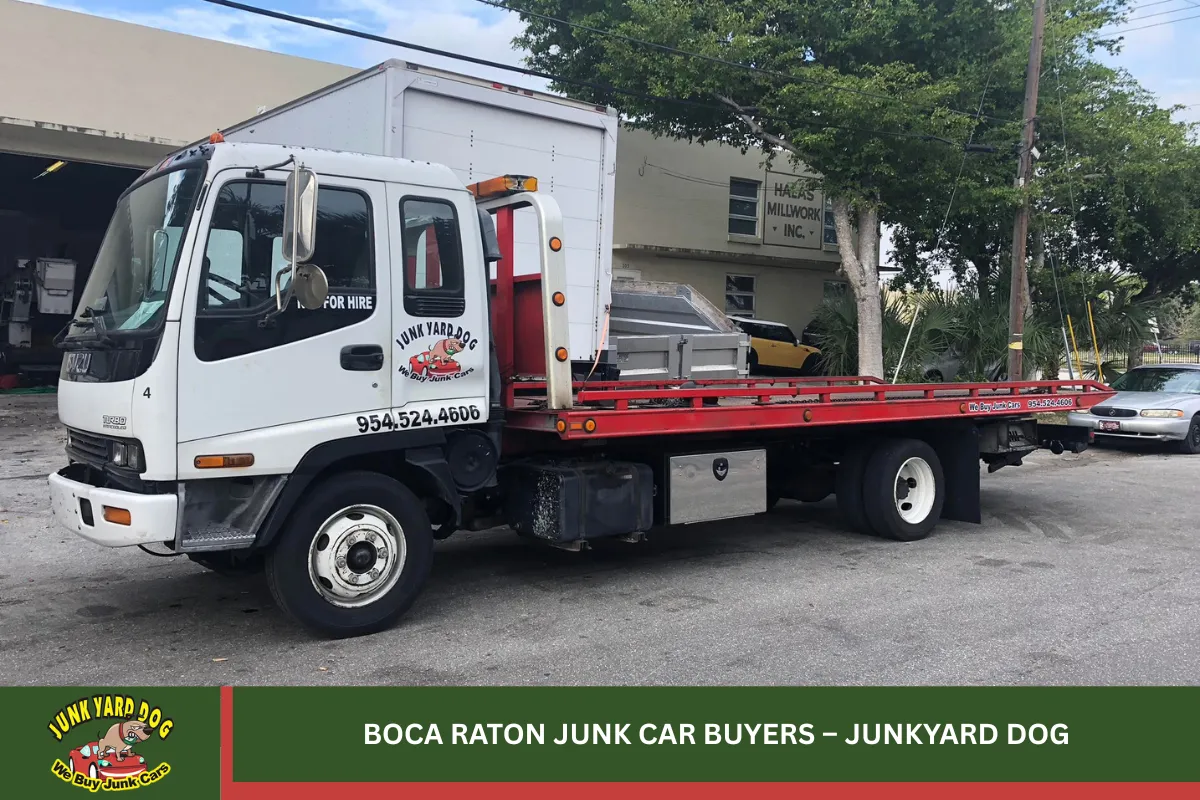Car owners often underestimate how much frame damage can affect their vehicle’s resale potential. In the middle of evaluating scrap value, parts, and resale possibilities, the role of a junkyard becomes more relevant—especially for vehicles with structural damage that are no longer safe to drive. Understanding how frame damage impacts the overall value of a junk car is essential for anyone hoping to get the most out of their vehicle in Boca Raton, Florida.
This article explores the concept of frame damage in depth, how it devalues junk cars, and how local junkyards determine pricing based on the condition of a vehicle’s structure. Whether the damage is the result of an accident, corrosion, or long-term exposure to Florida’s harsh elements, understanding the interplay of these factors will help you make informed decisions.
What Exactly Is Frame Damage?
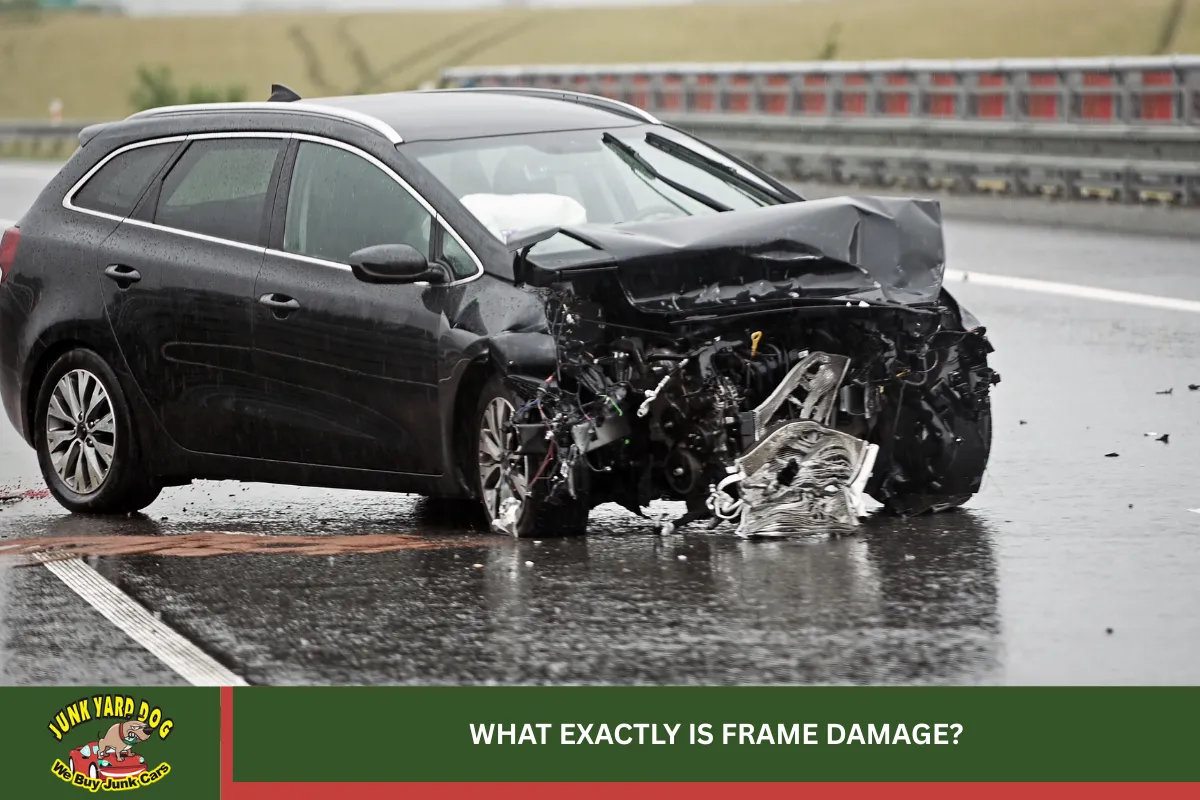
Frame damage refers to any structural impairment to the foundational support system of a vehicle. The frame, sometimes called the chassis, serves as the main skeleton of the car. It supports the engine, drivetrain, suspension, body panels, and more. Damage to this core structure compromises the vehicle’s ability to function safely and efficiently.
In Boca Raton, vehicles are usually exposed to moisture, salt in the air, and heavy traffic—conditions that increase the likelihood of accidents and corrosion. When a car’s frame is compromised, it becomes more difficult and expensive to repair, often leading the vehicle to be classified as a total loss.
There are two main types of frames in modern vehicles:
- Unibody Frame: This frame combines the chassis and the body into a single unit. It’s more common in cars and crossover SUVs. Damage to one part usually affects the entire vehicle’s structure.
- Body-on-Frame: Found in larger vehicles like trucks and full-size SUVs, this design separates the body from the frame. It’s generally easier to repair than a unibody structure, but extensive damage can still render the vehicle worthless.
Damage to either frame type can significantly reduce the value of a car in the eyes of a junkyard or salvage yard.
Why Frame Damage Reduces Vehicle Value
Frame damage impacts a junk car’s value because it affects the overall integrity, safety, and usability of the vehicle. Even when the car appears intact on the outside, structural damage can make it unsellable for reuse or dangerous to put back on the road.
Here are several key reasons why frame damage lowers a vehicle’s worth:
Compromised Safety
The most immediate issue is safety. A car with a damaged frame cannot protect its occupants properly during a collision. The crumple zones that are designed to absorb impact become ineffective, increasing the risk of injury. Because of this, the vehicle becomes legally and practically undrivable in many situations.
Limited Repair Options
Repairing a bent or broken frame requires specialized equipment, significant labor, and often replacement of key structural components. These repairs can easily cost more than the vehicle is worth—especially for older cars. As a result, most damaged vehicles are sold for scrap to junkyards rather than being fixed.
Lower Demand in the Market
A vehicle with a clean title and undamaged frame can be resold, parted out, or rebuilt. However, once a car sustains frame damage, it usually ends up with a salvage title. Vehicles with this label are heavily devalued and can’t be legally sold for regular road use without passing rigorous inspections. That makes them less attractive to both private buyers and dealerships.
Decreased Part Value
Frame damage often affects other major systems like the suspension, drivetrain, and exhaust system. If these parts are bent, misaligned, or cracked, their resale or reuse value drops. Even junkyards that deal with parts salvage prefer vehicles where essential components remain undamaged.
How Junkyards in Boca Raton Evaluate Junk Cars with Frame Damage
In Boca Raton, junkyards play a central role in the local car disposal process. These facilities purchase damaged or unwanted vehicles to recycle usable parts and recover scrap metal. When assessing a vehicle with frame damage, junkyards use a combination of methods to determine value.
Vehicle Weight and Scrap Metal Content
Scrap metal prices vary, but they always play a role in determining a junk car’s value. Heavier vehicles, especially trucks and SUVs, contain more steel and aluminum, which are profitable for junkyards to recycle. However, extensive frame damage can distort or corrode metal components, reducing the amount of usable scrap.
Condition of Major Components
Even if the frame is damaged, a junkyard may still salvage it:
- Engines and transmissions
- Radiators and cooling systems
- Doors, bumpers, and windows
- Electronics and dashboard components
If these parts are functional and undamaged, they can boost the vehicle’s resale value to the junkyard.
Title Status and Ownership
Cars with frame damage often carry salvage or rebuilt titles. Junkyards in Boca Raton legally require proper documentation to purchase a vehicle, even if it’s non-operational. While not having a title isn’t always a deal-breaker, it may reduce the offer or require additional steps to verify ownership.
Towing Accessibility
A heavily damaged frame can make it difficult to tow a vehicle safely. Cars that are difficult to access, collapsed, or unsafe to load may incur extra effort or equipment to remove, which could slightly lower the junkyard’s offer.
Environmental Exposure and Frame Damage in Boca Raton
Boca Raton’s climate contributes to faster wear and tear on vehicles, particularly affecting the frame. While sunshine and beach breezes define the area’s lifestyle, they also introduce environmental stress factors that accelerate frame deterioration.
Coastal Corrosion
Salt-laden air from the nearby coast can settle on the undercarriage of parked cars. Over time, this salt speeds up rust formation on exposed metal parts, including the frame. Regular washing can slow this process, but many vehicles accumulate rust over the years, especially those not stored in garages.
Flood and Rain Exposure
Tropical rains and occasional flooding during hurricane season can leave vehicles partially submerged or soaked. Moisture that seeps into the frame can lead to hidden corrosion. In extreme cases, water may weaken the frame’s welds and joints, leading to structural failure later.
For cars being sold to a junkyard, water damage and rust are major concerns, especially if the frame is brittle, flaking, or broken apart in places.
Signs Your Vehicle May Have Frame Damage
Some drivers aren’t even aware that their car’s frame is compromised. Whether from a minor accident or years of exposure, these signs often indicate a problem:
- Uneven tire wear
- Visible cracks or rust under the vehicle
- Poor wheel alignment or drifting when driving
- Misaligned doors and windows
- Squeaking, rattling, or grinding noises over bumps
- Sagging roofline or collapsed sections underneath
If any of these issues are present, it’s a good idea to have the car inspected. If repairs aren’t feasible or cost-effective, contacting a junkyard for evaluation is the next logical step.
Selling a Frame-Damaged Car to a Junkyard in Boca Raton
Vehicles with significant frame damage are not worthless. Junkyards in Boca Raton regularly purchase cars in poor condition, offering cash based on the salvageable value of parts and metal.
To get the best offer:
- Be Transparent: Inform the junkyard about the frame damage. It helps avoid last-minute price changes.
- Provide Accurate Details: Share the vehicle’s year, make, model, mileage, and title status.
- Request Multiple Quotes: Contact at least two or three local junkyards for comparison.
- Ask About Free Towing: Most junkyards in Boca Raton provide free vehicle pickup.
- Remove Valuables: Take out personal items and clean the car before pickup.
Honesty and preparation go a long way in maximizing your payout, even when frame damage is involved.
Additional Considerations for Older Cars
For cars older than ten years, frame damage may be one of several issues lowering the value. Worn-out engines, outdated parts, and limited market demand can already reduce the vehicle’s worth. However, older cars with intact frames often still serve as good candidates for part salvaging. Once the frame is damaged, its remaining value lies almost entirely in scrap.
Final Thoughts on Selling Frame-Damaged Cars in Boca Raton
Frame damage drastically reduces the market value of any vehicle, but it doesn’t eliminate the possibility of making money from it. Whether due to a collision, coastal corrosion, or flood exposure, cars with compromised frames can still fetch a fair price from junkyards interested in their parts and metal.
Understanding how damage is evaluated and knowing what junkyards look for empowers you to get the best deal possible. If your car is no longer safe to drive, selling it to a licensed junkyard in Boca Raton is both practical and responsible. It clears up space, puts cash in your pocket, and ensures your old car is put to good use—or recycled properly.
Boca Raton Junk Car Buyers – Junkyard Dog
Junkyard Dog is a trusted and licensed Florida car buyer that pays cash for junk cars in any condition—even those with frame damage. We purchase all makes and models, including cars that are no longer running, wrecked, or completely beyond repair. No title? No problem. We’re able to legally buy your vehicle and handle all the paperwork for a smooth, stress-free process.
Our team offers free towing throughout Boca Raton and nearby areas, with same-day pickup often available. Whether it’s a car, truck, van, or SUV, we make it easy to turn your unwanted vehicle into fast cash. Call (561) 216-4111 now to get a free quote and schedule your junk car removal today!
Frequently Asked Questions About Frame Damage and Junk Car Value in Boca Raton
What’s the difference between body damage and frame damage?
Body damage usually affects cosmetic or external parts of a vehicle—such as fenders, doors, bumpers, or paint. These are visible areas that don’t directly affect the car’s structural integrity. Frame damage, on the other hand, involves the vehicle’s core structure, often referred to as the car frame. This includes frame rails, the radiator support, and crumple zones that absorb impact in collisions.
Key Differences:
- Body Damage:
- Dents, scratches, broken lights, or cracked windshields
- Easier and cheaper to repair
- Doesn’t usually affect resale value drastically
- Vehicle Frame Damage:
- Involves structural components
- Affects diminished value, safety, and performance
- May classify the car as a salvage vehicle
Frame damage typically results from severe collisions or corrosion, while body damage might occur from minor accidents or environmental wear. Always check a vehicle history report to determine the full extent of any previous accident history.
Can frame damage be repaired, and is it worth the cost?
Yes, car frame damage can often be repaired through a process called frame straightening. However, whether it’s worth fixing depends on several important factors, such as the market value of the vehicle, repair costs, and overall structural integrity after repairs.
Consider the following:
- Unibody construction: Common in modern cars, it makes repairs more complex and expensive.
- Body-on-frame construction: Easier to repair but still costly if the damage is extensive.
- Extent of the damage: Minor bends may be fixable, but cracks or severe misalignments drastically reduce the car’s value.
Auto repair shops use precision equipment to straighten the frame, but results can vary. Even after repairs, the vehicle may still suffer diminished value, affecting its resale or private sale potential. Additionally, a repaired frame can impact auto insurance rates or coverage options. Most cars with serious vehicle frame damage are better suited for a salvage auction or sale to junkyards.
How does frame damage affect my car’s resale value?
Frame damage significantly lowers a car’s resale value. Since the structural integrity of the vehicle is compromised, it becomes less safe and more difficult to sell—even if repairs have been made.
Here’s how resale value is affected:
- Private Sale Difficulty: Buyers often avoid vehicles with a history of structural damage.
- Vehicle History Reports: Services like Carfax list accident history, flagging the car as a potential risk.
- Diminished Value: Even with full repairs, the car loses value simply due to its damage history.
- Auto Insurance Payouts: If the car is later involved in another accident, insurers may offer a lower payout based on previous frame issues.
In most cases, the vehicle will be treated as a total loss if the repair costs exceed its market value. At that point, the car may only be worth selling as a junk vehicle to a junkyard.
What parts of the car frame are most commonly damaged in a collision?
During a collision, several key areas of the car frame are at high risk for damage. These components are essential to the vehicle’s structure and safety systems, including crumple zones and support systems.
Common areas affected include:
- Frame Rails – Act as the foundation of the frame; often bent in frontal or rear-end collisions.
- Radiator Support – Supports the cooling system; frequently damaged in front-end accidents.
- Crush Zones (Crumple Zones) – Designed to absorb impact; any deformation here suggests serious force.
- Suspension Mounts – Misalignment here may indicate hidden structural damage.
- Floor Pan & Cross Members – Damage to these areas can compromise cabin safety.
In vehicles with unibody design, these parts are integrated with the main frame, making repairs more expensive and complex. For body-on-frame construction, these parts are separate but still critical. All these issues negatively impact car value, especially if disclosed in a vehicle report or seen during inspection.
Can I still sell a car with frame damage to a junkyard?
Absolutely. Many junkyards in Boca Raton specialize in buying cars with frame damage, whether they’re operable or not. These facilities focus on recycling vehicles for scrap metal, reusable parts, or salvage auction resale. Even a damaged car that qualifies as a total loss can be sold for cash.
Selling to a junkyard makes sense if:
- Repair costs are too high
- The vehicle has been declared a salvage vehicle
- The car’s resale value is too low for a private sale
- You’ve received an auto insurance payout already
Before selling:
- Get a vehicle history report
- Remove personal items and license plates
- Provide ownership documents (though some junkyards can buy without a title)
Many junkyards offer free towing and instant cash offers. It’s a quick way to offload a junk vehicle while still recovering some value. This is especially useful for cars with serious structural damage or those that fail safety inspections.
Read more: What Junkyards Look for When Buying Frame-Damaged Cars in Boca Raton, FL
